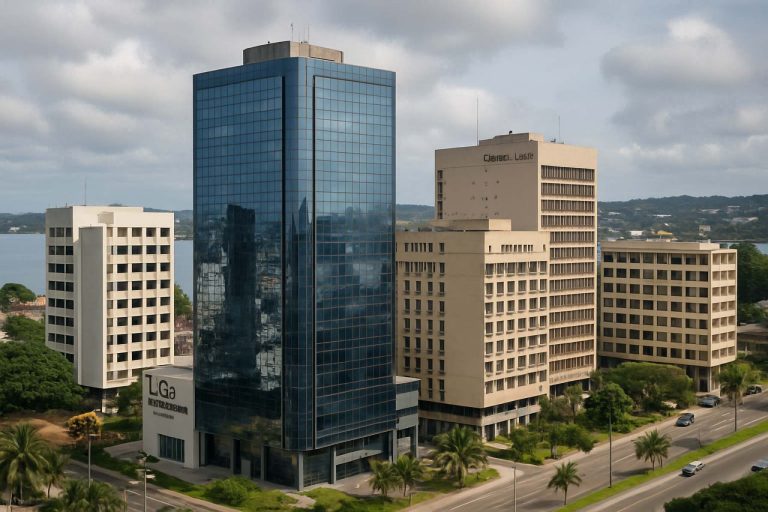
Table of Contents
- Introduction: Somalia’s Investment Landscape in 2025
- Key Economic Indicators and Growth Sectors
- Legal Framework: Business Laws, Property Rights, and Taxation
- Government Initiatives and Investment Incentives
- Navigating Compliance: Registration, Licensing, and Reporting
- Infrastructure and Technology: Foundations for Expansion
- Risks and Mitigation Strategies in the Somali Market
- Case Studies: Recent Success Stories and Market Entrants
- Future Outlook: Projections and Strategic Opportunities (2025–2030)
- Resources and Official Guidance for Investors
- Sources & References
Introduction: Somalia’s Investment Landscape in 2025
Somalia’s investment landscape in 2025 is defined by a blend of opportunity and complexity, shaped by recent political developments, evolving legal frameworks, and ambitious economic reforms. Following decades of instability, the country has made significant strides toward creating a more conducive environment for both domestic and foreign investors. The Federal Government of Somalia has prioritized economic growth and private sector development as part of its Vision 2060 and National Development Plan 9, with a focus on enhancing security, governance, and regulatory certainty. Notably, Somalia’s GDP growth is projected at approximately 3.7% for 2025, buoyed by recovery in agriculture, remittances, and renewed international engagement (Ministry of Finance, Somalia).
Key legislative changes have bolstered investor confidence. The 2019 Investment Promotion and Protection Act, implemented by the Ministry of Planning, Investment and Economic Development, establishes fundamental protections for investors, including safeguards on property rights and mechanisms for dispute resolution. Subsequent policy initiatives, such as the “One-Stop-Shop” for business registration, have streamlined licensing and compliance procedures, reducing bureaucracy and improving transparency (Ministry of Planning, Investment and Economic Development). The Central Bank of Somalia has also advanced the modernization of financial regulations, including the development of mobile money oversight and anti-money laundering frameworks, which are critical for investor due diligence and compliance (Central Bank of Somalia).
Despite these reforms, significant challenges persist. Investors must navigate ongoing security concerns, limitations in infrastructure, and a judicial environment still building its capacity for commercial dispute resolution. The government, in partnership with international agencies, continues to address these gaps through institutional reforms and targeted investment in critical sectors such as telecommunications, fisheries, agriculture, and renewable energy (Ministry of Finance, Somalia).
Looking ahead, Somalia’s accession to regional organizations, such as the East African Community in 2023, is expected to further integrate the country into continental trade and investment networks, potentially accelerating economic diversification and foreign direct investment inflows. The outlook for 2025 and the following years remains cautiously optimistic, contingent on sustained political stability, deepening legal reforms, and continued progress in governance and security.
Key Economic Indicators and Growth Sectors
Somalia’s economic landscape in 2025 reflects both persistent challenges and notable opportunities for investors. The Somali economy, largely informal and centered around agriculture, livestock, and remittances, is gradually experiencing formalization and diversification. According to the Ministry of Finance, Federal Government of Somalia, the country’s GDP growth rate is projected to hover around 3% in 2025, slightly up from previous years, driven largely by improved security conditions, the gradual expansion of service sectors, and international development support.
Agriculture and livestock remain the backbone of the Somali economy, accounting for over 60% of GDP and providing livelihood for approximately 70% of the population. Fisheries and horticulture are growth areas, buoyed by government efforts to improve infrastructure and regulation. The Ministry of Agriculture and Irrigation has outlined strategic plans to support agribusiness investment, including incentives for irrigation projects and value-added processing.
The telecommunications and financial services sectors are increasingly dynamic. Mobile money platforms, such as those regulated by the Central Bank of Somalia, have seen widespread adoption, enhancing financial inclusion and supporting small business growth. In 2023, the Central Bank granted new licenses to both domestic and foreign banks, signaling a more competitive and regulated financial environment.
Legal and regulatory reforms have also focused on attracting foreign direct investment (FDI). The Ministry of Commerce and Industry continues to implement the Investment Promotion and Protection Act, which provides guarantees against expropriation, non-discriminatory treatment, and dispute resolution mechanisms. The government is also streamlining business registration processes and modernizing commercial laws in cooperation with international partners.
Infrastructure development remains a key priority, notably in transport, energy, and ports. The rehabilitation of Mogadishu Port and development of new road corridors are supported by public-private partnerships and international financing, as documented by the Ministry of Planning, Investment and Economic Development. These initiatives are expected to stimulate trade and lower logistical costs for investors.
Despite these advances, Somalia’s investment climate in 2025 is tempered by ongoing political fragility, security risks, and regulatory unpredictability. Nevertheless, for risk-tolerant investors, key sectors—agriculture, fisheries, telecommunications, infrastructure, and financial services—offer long-term potential. Continued reforms and international engagement are set to gradually improve the business environment over the coming years.
Legal Framework: Business Laws, Property Rights, and Taxation
Somalia’s legal framework for investment has evolved significantly in recent years, with the government prioritizing reforms to create a more attractive environment for both domestic and foreign investors. The primary legislation governing investment is the Investment Law (Law No. 19 of 2019), which established the Ministry of Commerce and Industry as the central authority for investment registration, licensing, and promotion. This law guarantees equal treatment for foreign and local investors, protection against expropriation without compensation, and the right to repatriate profits and capital.
Business registration in Somalia is streamlined through the One-Stop Shop initiative under the Ministry of Commerce and Industry, aiming to reduce bureaucratic hurdles and improve transparency. All businesses must register with the Somali Chamber of Commerce and obtain a Tax Identification Number (TIN) from the Ministry of Finance. In 2023, the Somali government introduced digital platforms for business registration and tax payments, which is expected to improve compliance and attract more formal sector investment in 2025 and beyond.
Property rights in Somalia are protected by the Provisional Constitution (2012), which recognizes private property and guarantees due process in cases of expropriation. However, land tenure remains a complex issue due to overlapping customary, religious, and statutory systems. The government, with support from international partners, has initiated land reform programs, but inconsistencies in documentation and enforcement persist in some regions (Ministry of Justice). Investors are advised to conduct thorough due diligence and seek legal counsel when acquiring land or property.
Taxation in Somalia is governed by the Revenue Management Law (Law No. 02 of 2016), which sets out the framework for corporate income tax, withholding taxes, and value-added tax (VAT). The standard corporate tax rate is 20%, and VAT is levied at 10%, with exemptions for certain sectors such as agriculture and basic services (Ministry of Finance). The government is working to expand the tax base and improve revenue collection through digitalization and capacity building, with the aim of increasing the tax-to-GDP ratio from 2.5% in 2022 to at least 5% by 2027.
- Key compliance requirements include annual tax filings, maintenance of proper accounting records, and adherence to anti-money laundering (AML) and counter-terrorism financing (CTF) regulations as prescribed by the Central Bank of Somalia.
- Foreign investors are permitted to own 100% of businesses in most sectors, with exceptions in areas deemed strategic or related to national security.
- Dispute resolution mechanisms include domestic courts and arbitration, with Somalia a signatory to several international conventions on investment protection.
The outlook for Somalia’s investment legal framework in 2025 and the coming years is cautiously optimistic. Ongoing reforms, digitalization of business processes, and international engagement signal a move towards greater legal certainty, though challenges remain in enforcement and property rights harmonization. Investors are encouraged to stay abreast of regulatory updates and engage with local authorities to ensure full compliance.
Government Initiatives and Investment Incentives
Somalia’s government has taken significant steps to attract both domestic and foreign investment, aiming to diversify its economy and spur job creation in line with national development plans. The Ministry of Finance of the Federal Government of Somalia has been central to these reforms, implementing fiscal policies and tax incentives to encourage private sector growth. In 2023, Somalia launched the National Investment Promotion Strategy, seeking to streamline licensing, reduce bureaucratic hurdles, and enhance investor protections.
Key legislation guiding investment includes the Foreign Investment Law (Law No. 1 of 2015), which guarantees the repatriation of profits, equal treatment for foreign and domestic investors, and protection against expropriation except for public interest with fair compensation. The government has also established the Somalia Investment Promotion Office (SIPO), tasked with facilitating investor inquiries, supporting project implementation, and providing aftercare services.
To further incentivize investment, the government offers a range of incentives, including tax holidays, exemptions on import duties for capital goods, and access to designated Special Economic Zones (SEZs). The Ministry of Commerce and Industry regularly updates guidelines on investment opportunities, particularly in priority sectors such as agriculture, fisheries, renewable energy, and infrastructure. In 2024, new SEZ regulations were published to clarify tax breaks and guarantee infrastructure support for anchor investors.
Compliance requirements have also been strengthened. Investors must adhere to anti-money laundering regulations as outlined by the Central Bank of Somalia and obtain sector-specific permits where applicable. The Somali government has made efforts to align with international compliance standards, including joining the Arab Investment and Export Credit Guarantee Corporation (Dhaman) to enhance investor confidence.
According to the Ministry of Finance, foreign direct investment (FDI) inflows reached approximately $500 million in 2023, reflecting increased investor interest and confidence in Somalia’s improving regulatory environment. The World Bank’s 2024 Doing Business update noted improvements in starting a business and cross-border trade indicators, though challenges remain in contract enforcement and property registration.
Looking ahead to 2025 and beyond, the Somali government plans to introduce further reforms, including digitalizing business registration processes and enhancing dispute resolution mechanisms through specialized commercial courts. With continued government commitment and improving security conditions, the outlook for investing in Somalia is cautiously optimistic, especially in sectors targeted by government incentives and development programs.
Navigating Compliance: Registration, Licensing, and Reporting
Investing in Somalia in 2025 requires careful navigation of the country’s evolving compliance landscape, especially concerning business registration, licensing, and ongoing reporting obligations. The Somali government has made efforts to streamline procedures, aiming to attract both local and foreign investors by clarifying regulatory requirements and strengthening institutional capacity.
Business Registration: Investors must first register their enterprises with the Ministry of Commerce and Industry. The process involves submitting corporate documents, paying registration fees, and obtaining a business license. The Ministry has digitized parts of its registration system to reduce processing times and improve transparency, in line with the government’s goal of formalizing the business environment. Foreign investors may also need to submit additional documentation, such as proof of capital and identification of beneficial owners.
Licensing Requirements: Sector-specific licenses are overseen by relevant ministries. For example, financial institutions must seek approval from the Central Bank of Somalia, which maintains a licensing and supervision framework under the Financial Institutions Law. Companies operating in extractive industries, telecommunications, or import/export must comply with additional sectoral regulations, often involving environmental and security assessments.
Reporting and Compliance: All registered businesses are subject to periodic reporting. This includes annual financial statements, tax filings to the Ministry of Finance, and compliance with anti-money laundering (AML) and counter-terrorism financing (CTF) regulations monitored by the Financial Reporting Center. Somalia’s AML regime was strengthened following its removal from the Financial Action Task Force (FATF) grey list in 2024, increasing scrutiny on customer due diligence, record-keeping, and suspicious transaction reporting.
Key Statistics and Outlook: In 2024, the Ministry of Commerce registered over 3,000 new businesses, a 20% increase from the previous year, reflecting growing investor confidence. The government has signaled further reforms, including digitalization of company registries and harmonization of tax codes, to be rolled out through 2026. However, compliance risks remain—particularly in regions with limited government presence—necessitating robust local partnerships and ongoing legal review.
Investors in Somalia should stay abreast of regulatory changes, engage with official agencies for guidance, and implement internal controls to ensure ongoing compliance. The outlook is cautiously optimistic: while bureaucratic and security challenges persist, ongoing reforms signal a trajectory toward greater regulatory clarity and institutional support for investment.
Infrastructure and Technology: Foundations for Expansion
Somalia’s infrastructure and technology sectors, though historically underdeveloped due to decades of instability, are showing promising signs of revitalization and expansion as the country enters 2025. The Somali government, recognizing the critical role of these sectors in economic revival, has taken substantive steps to create an enabling environment for domestic and foreign investment and to address regulatory and legal frameworks.
In 2023, the Federal Government of Somalia launched its Ninth National Development Plan (NDP-9), prioritizing infrastructure and digital transformation as strategic pillars for socioeconomic growth. The Plan outlines major initiatives in transport (roads, ports, airports), energy, and telecommunications, emphasizing public-private partnerships (PPPs) to finance and implement large-scale projects.
Recent legislative changes have further enhanced the investment climate. The Investment Promotion and Protection Act (2021) provides guarantees against expropriation and offers tax incentives for investors in priority sectors, including infrastructure and ICT. The law also establishes the Somali Investment Promotion Office (SIPO) as a one-stop shop for investment facilitation, compliance guidance, and dispute resolution.
The telecommunications sector, one of the most dynamic in Africa, continues to attract significant private investment. As of late 2024, Somalia had over 13 million mobile subscribers—covering more than 80% of the population—with several licensed operators delivering mobile and internet services, including 4G coverage in major cities (National Communications Authority). The enactment of the Communications Act (2017) and the subsequent licensing regime have improved regulatory certainty, contributing to increased investor confidence.
Infrastructure, particularly in ports and logistics, is a focal point. Major projects include the ongoing expansion of the Port of Mogadishu and the Berbera corridor, which are critical for regional trade (Ministry of Ports and Marine Transport). The African Development Bank and World Bank are also supporting Somalia’s road rehabilitation and rural electrification through direct funding and technical assistance (Ministry of Finance).
- Somalia’s broadband penetration rate is projected to reach 30% by the end of 2025, up from just 10% in 2020 (National Communications Authority).
- Infrastructure projects worth over $500 million are currently under implementation or negotiation (Ministry of Finance).
The outlook for 2025 and beyond is cautiously optimistic. Challenges persist, including security risks and capacity constraints, but ongoing reforms and robust demand for digital and logistical services are expected to drive continued growth. Investors are advised to maintain strict compliance with local laws and to engage with the relevant regulatory bodies for updated guidance and risk assessment.
Risks and Mitigation Strategies in the Somali Market
Investing in Somalia in 2025 presents a complex risk landscape shaped by security, regulatory, economic, and operational factors. Investors must navigate persistent challenges while leveraging evolving mitigation frameworks and reforms. Understanding these dynamics is critical for informed decision-making.
- Security and Political Risk: Ongoing security concerns, particularly from insurgent groups, remain a primary risk. The Somali federal government and international partners continue to strengthen security sector reforms, with the Ministry of Finance, Federal Government of Somalia highlighting increased budget allocations and international support for police and military capacity building. Investors are advised to conduct robust security assessments and consider political risk insurance.
- Legal and Regulatory Framework: Somalia has undertaken significant legal reforms to attract investment. The Ministry of Commerce and Industry has implemented the Investment Promotion Policy, facilitating foreign investment registration and guaranteeing equal treatment for foreign investors. However, enforcement of contracts and property rights remains inconsistent due to limited judicial capacity. Engaging local legal counsel and structured dispute resolution mechanisms, such as arbitration, are recommended.
- Anti-Money Laundering (AML) and Compliance: Somalia’s financial sector is under close monitoring by the Central Bank of Somalia, with strengthened anti-money laundering and counter-terrorism financing regimes in place. Compliance with international standards, including customer due diligence and transaction monitoring, is mandatory for both local and foreign entities. Investors should establish strong internal compliance programs and work with authorized financial institutions to mitigate reputational and regulatory risks.
- Economic and Operational Risks: Infrastructure deficits, limited access to finance, and unpredictable power supply pose significant operational challenges. The government’s National Development Plan 2025–2029, published by the Ministry of Planning, Investment and Economic Development, outlines ongoing investment in roads, ports, and digital infrastructure, aiming to improve conditions for private sector growth. Investors are encouraged to conduct comprehensive due diligence and consider public-private partnership opportunities where available.
- Key Statistics and Outlook: According to the Central Bank of Somalia, FDI inflows have shown modest growth as reforms take hold, though they remain below pre-conflict regional averages. The outlook for 2025–2027 is cautiously optimistic, driven by regulatory improvements and international donor engagement, but dependent on sustained security and institutional progress.
In summary, while Somalia’s market offers high-reward opportunities, it demands diligent risk management. Investors should adopt a proactive compliance posture, maintain flexible strategies, and engage with local and international partners to mitigate market-specific risks.
Case Studies: Recent Success Stories and Market Entrants
In recent years, Somalia has witnessed a cautious but notable increase in both domestic and foreign investment, driven by ongoing political stabilization efforts, regulatory reforms, and investor-friendly policies. Several high-profile case studies illustrate the evolving landscape for market entrants and successful ventures, offering insights into the opportunities and challenges of investing in the country as of 2025.
- Somtel’s Expansion and Telecommunications Growth: The telecommunications sector remains one of Somalia’s most dynamic industries. Somtel, a leading telecom provider, has expanded its services countrywide, leveraging modern infrastructure and mobile money platforms to reach underserved regions. This growth has been facilitated by the government’s commitment to liberalizing the sector and implementing the Communications Act under the oversight of the National Communications Authority. As of 2025, mobile penetration rates have exceeded 70%, providing a model for sectoral growth and regulatory compliance.
- International Banks and Financial Inclusion: The financial sector has seen increased participation from international banks, most notably the entry of Dahabshil Bank International and the licensing of several foreign banks by the Central Bank of Somalia. These institutions have contributed to financial inclusion, helping Somalia’s unbanked population access formal financial services. Noteworthy is the Central Bank’s enforcement of anti-money laundering and counter-terrorism financing measures, aligned with the Anti-Money Laundering and Countering the Financing of Terrorism Act, which has improved investor confidence.
- Renewable Energy Projects: Somalia’s abundant solar and wind resources have attracted renewable energy investments, such as the partnership between the Ministry of Energy and Water Resources and local firms to deploy off-grid solar solutions. According to the Ministry of Energy and Water Resources, recent projects have increased rural electrification rates and reduced dependence on imported fuels, positioning Somalia for sustainable growth.
- Port and Infrastructure Development: The modernization of Mogadishu Port, managed by Somali Ports Authority, and new investments in Berbera Port, in collaboration with international partners, have enhanced logistics capacity and boosted trade. These developments comply with the Ministry of Transport and Civil Aviation’s regulatory standards, facilitating smoother market entry for importers and exporters.
Overall, these case studies demonstrate that with careful navigation of Somalia’s evolving legal framework and compliance requirements, investors in telecommunications, finance, renewable energy, and infrastructure are achieving measurable success. The outlook for 2025 and beyond suggests continued growth, underpinned by regulatory reforms and the government’s pro-investment stance.
Future Outlook: Projections and Strategic Opportunities (2025–2030)
Somalia’s investment landscape is expected to undergo significant transformation between 2025 and 2030, shaped by ongoing regulatory reforms, regional integration efforts, and improvements in security and infrastructure. The government has signaled its commitment to fostering a more conducive environment for foreign and domestic investment, notably through the implementation of the Investment Promotion and Protection Act (Law No. 25 of 2023), which establishes new guarantees for investors, including equal treatment, repatriation of profits, and protection against expropriation. The law also introduces the Somali Investment Promotion Office (SIPO) as a one-stop shop for facilitating investment registration and compliance processes.
Key sectors projected for strong growth include agriculture, renewable energy, fisheries, telecommunications, and infrastructure. Somalia’s strategic location along major international shipping routes and its membership in the East African Community (EAC), formalized in 2023, are expected to further enhance market access and regional trade opportunities (East African Community). The government’s National Development Plan (NDP-9) targets substantial infrastructure development, including ports, roads, and energy projects, to support private sector-led economic growth (Ministry of Planning, Investment and Economic Development).
Compliance and risk management remain central to the investment outlook. Somalia has continued to align its anti-money laundering and counter-terrorism financing measures with international standards, following recommendations from the Financial Action Task Force (FATF) and collaboration with the Central Bank of Somalia’s Financial Intelligence Unit. Investors should anticipate ongoing regulatory updates in areas such as tax law, labor standards, and environmental compliance, as the government strengthens its legal framework to attract sustainable investment.
Statistical projections indicate a cautiously optimistic trajectory. The Somali economy is forecast to grow at an annual rate of 3–4% over the medium term, with foreign direct investment (FDI) expected to increase as security improves and the business environment stabilizes (Central Bank of Somalia). The World Bank estimates that export revenues and remittance inflows will continue to underpin economic resilience, while new reforms could unlock greater capital flows and job creation.
Overall, while challenges such as political uncertainty and persistent security risks remain, the period from 2025 to 2030 presents strategic opportunities for investors prepared to navigate Somalia’s evolving regulatory and economic landscape. Continued engagement with official agencies and adherence to local compliance protocols will be essential for tapping into the country’s long-term growth potential.
Resources and Official Guidance for Investors
Investors considering Somalia in 2025 will find an evolving framework of official resources and guidance aimed at encouraging responsible investment and ensuring compliance with local laws. The Federal Government of Somalia has prioritized economic revitalization and foreign direct investment (FDI) attraction, most notably through the establishment and operations of the Somali Investment Promotion Office (Ministry of Finance, Somalia). This office acts as a central point for investor inquiries, providing guidance on regulatory requirements, sectoral opportunities, and investment procedures.
The principal legal structure for investment is governed by the Investment Law (Law No. 19 of 2015), which outlines guarantees for investors, procedures for dispute resolution, and incentives for foreign capital inflows. The law is supplemented by sector-specific regulations, particularly in industries such as telecommunications, fisheries, and renewable energy. The Somali government is currently reviewing and updating investment-related laws to better align with international best practices and to address concerns related to land rights, taxation, and intellectual property.
Compliance with local and international anti-money laundering, counter-terrorism financing, and corporate governance requirements is overseen by the Financial Reporting Center (Financial Reporting Center) and the Central Bank of Somalia (Central Bank of Somalia). These agencies provide official guidance for financial institutions and investors to adhere to Somalia’s compliance framework, including mandatory reporting and due diligence standards.
Statistical data from the Ministry of Finance and the National Bureau of Statistics (National Bureau of Statistics) indicate that FDI into Somalia, while still modest, has shown cautious growth since 2022, particularly in telecommunications, construction, and agriculture. Government reports highlight ongoing reforms to streamline business registration, customs processes, and licensing through digital platforms, reducing bureaucratic hurdles for new entrants (Ministry of Finance, Somalia).
Looking ahead to 2025 and beyond, official projections remain optimistic, buoyed by Somalia’s progress in debt relief and reintegration with international financial institutions (Ministry of Finance, Somalia). The government continues to publish investment guides and sector briefs, and periodic consultations are held for foreign investors via embassies, investment forums, and the Somali Chamber of Commerce and Industry (Somali Chamber of Commerce and Industry). For the most up-to-date guidance, investors are advised to consult these official sources and engage directly with in-country representatives to navigate Somalia’s dynamic regulatory and economic environment.
Sources & References
- Ministry of Finance, Somalia
- Ministry of Planning, Investment and Economic Development
- Central Bank of Somalia
- Ministry of Finance, Somalia
- Ministry of Agriculture and Irrigation
- Ministry of Commerce and Industry
- Ministry of Justice
- Ministry of Commerce and Industry
- National Communications Authority
- Ministry of Ports and Marine Transport
- Ministry of Energy and Water Resources
- Financial Reporting Center
- National Bureau of Statistics
- Somali Chamber of Commerce and Industry



